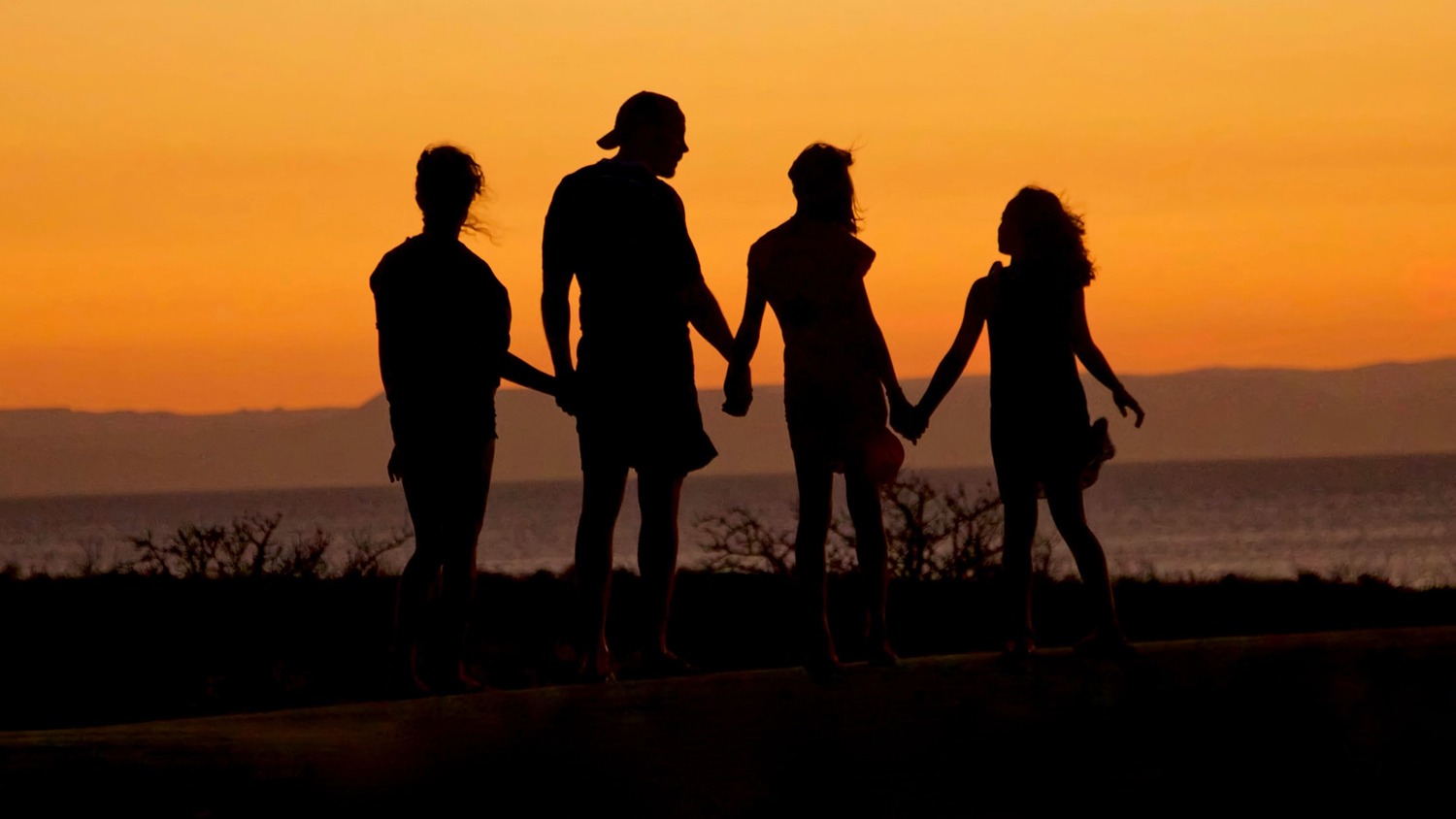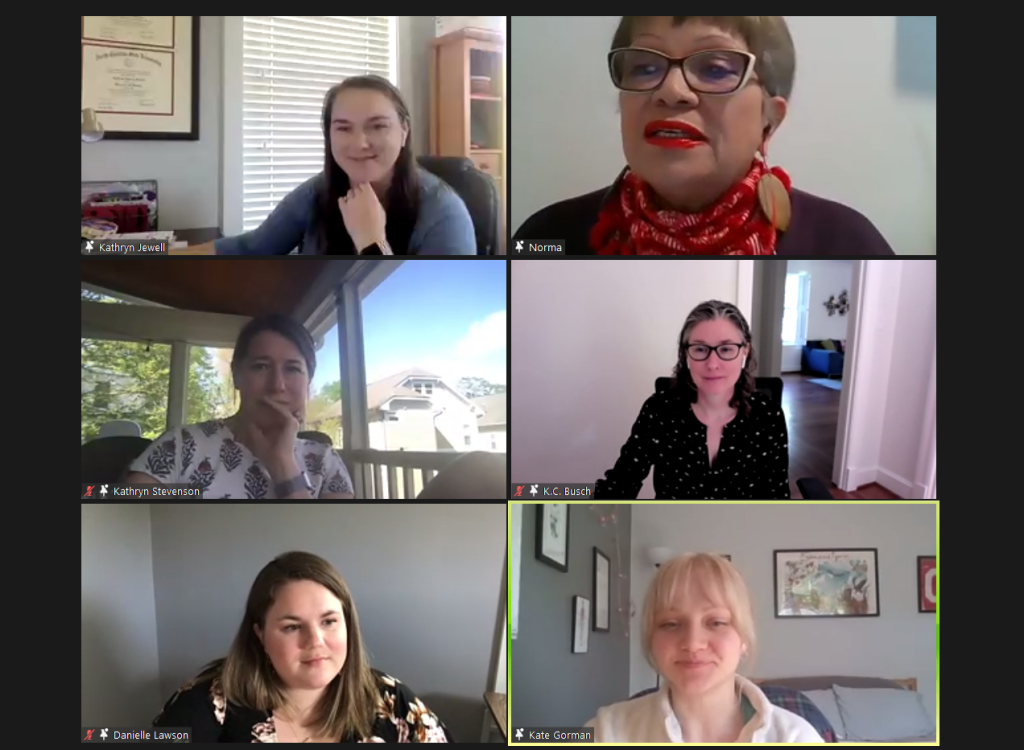Global Change Seminar Summary: Intergenerational Learning

The 2020-21 cohort of SE CASC Global Change Fellows hosted the final seminar in the Spring Global Change Seminar Series, Intergenerational Learning: How Children are Changing Past Generations’ Environmental Perceptions on April 13, 2021. The following summary of the discussion was written by Global Change Fellow, Hemant Kumar.
View a recording of the discussion.

Speakers:
Dr. Danielle Lawson: Danielle Lawson is an Assistant Professor in the Recreation, Park, and Tourism Management Department at Pennsylvania State University. She received her Ph.D. in Parks, Recreation, and Tourism Management from NC State in 2019, as well as a double Master’s degree in Environmental Education and Coastal Management from the University of North Carolina in 2015. Dr. Lawson’s research has focused on a variety of topics, including how intergenerational learning can impact climate change concerns in the agricultural communities of North Carolina, agroforestry in Belize, environmental education as well as social justice.
Dr. Kathryn Stevenson: Kathryn Stevenson is an assistant professor in the Parks, Recreation, and Tourism Department at NC State University. Her research and teaching focuses on environmental education and her research around similar topics of children and nature. She is interested in both the benefits that time outside can provide to children, as well as how children can provide unique and powerful voices in their communities around environmental challenges. Germaine to this panel, Dr. Stevenson has focused on child –> adult intergenerational learning, with a particular interest in how child-led communications may activate universal values among diverse groups of adults, inviting them to think outside the political and ideological boundaries that usually divide us.
Dr. K.C. Busch: Dr. K.C. Busch is an Assistant Professor of STEM Education at North Carolina State University, specializing in informal science learning and affiliated with the Leadership in Public Science interdisciplinary cluster. Her long-term career goal is to explore and advance educational experiences that empower individuals to engage in collective action to improve their lives and their communities. Drawing on research from the fields of science communication and environmental psychology, K.C. has investigated the language used to teach about climate change in educational settings, and how that framing affects youth perception of the problem and their capacity for creating solutions.
Mrs. Norma Ortiz: Norma Ortiz is a co-author on a project with Dominique M. David-Chavez in Intergenerational research on indigenous agricultural knowledge, climate resilience, and food security in the Caribbean. She has a Bachelor’s degree in Education from the University of Puerto Rico, Cayey, as well as a Master’s degree in school counseling from the Interamerican University of Puerto Rico. Norma worked in physical education for five years and was a school Counselor for 25 years. She is currently retired and volunteers in her community working with kids, youth and elders in Cidra, Puerto Rico.
Synopsis
The Global Change Fellows brought together an interdisciplinary panel to discuss how Intergenerational Learning (IGL) has changed across the years and how children are changing the past generations’ environmental perceptions. The discussion covered how communication through IGL can help people to align and to act on contentious topics such as climate change.
What is Intergenerational Learning (IGL)?
IGL in its simplest form is any form of communication between two generations: young people and elders. For example, it can be elders teaching the children how to plant trees and youth teaching their parents how to use a smartphone. IGL is the back-and-forth flow of information, knowledge, and behaviors between different generations of a family and community.
How does IGL work and what are some of the challenges associated with it?
IGL happens through communication between different generations. Traditionally it has been viewed as transfer of knowledge from elders to children. However, it is slowly changing and as Mrs. Norma Ortiz pointed out, children are also informing their elders of modern science and technology such as weather forecasting and climate change. Social relationships are the foundation of IGL. Dr. K.C. Busch made the point that IGL is not only a driver of how people understand things but it’s also a driver of whether or not people take action.
How can agritourism act as an education tool and have familial impacts?
Dr. Kathryn Stevenson, who is working with USDA on a project to understand the impact of agritourism, highlighted that parents are in general more willing to expand their budgets to support local farms after interacting with the farmers. The higher agricultural literacy of children is correlated with whether they have interacted with a farmer and how often they talk to their parents about not just food related things but general things such as homework.
How has climate education for children changed over the years?
Dr. Busch’s research emphasized that the States which have adopted the Next Generation Science Standards are doing better although we have much to improve. There is a huge variation across the U.S. as education curriculum varies widely even within a state and many student-populous states such as Texas, California, and New York are failing to provide accurate information on climate change, mitigation, and adaptation strategies to students, as is evident from the NCSE report.
What is the future of IGL?
Dr. Danielle Lawson recommended that we should move away from the colonial legacy of a “sage on the stage” where knowledge transfer happens from a know-it-all person to young people and incorporate other IGL practices of other cultures such that everyone brings something to table. Mrs. Ortiz added, “We have to explain to the children why they have to learn math, science, and other topics. If we don’t explain the why then children won’t learn it. We have to explain that learning about climate change and taking action on it is going to help our community to be better off.”
Conclusion
The panelists offered wonderful insight into how intergenerational learning has happened in the past and how it is changing in modern times. IGL is not merely a driver of how people understand things but it is also a driver of whether or not people take action. As Mrs. Ortiz stated, “We can do much much more once we start working together.”
View seminar recording.
- Categories:
